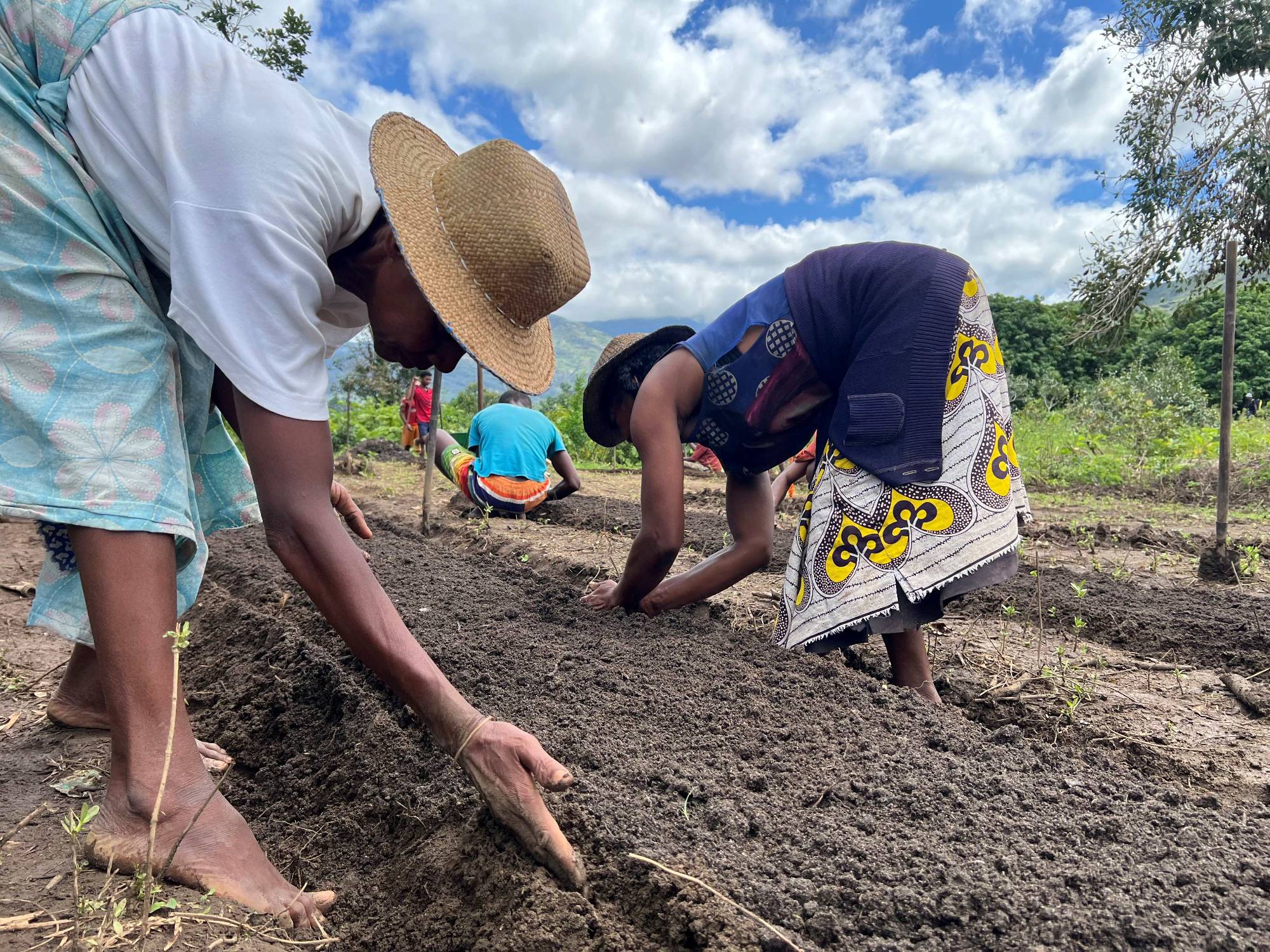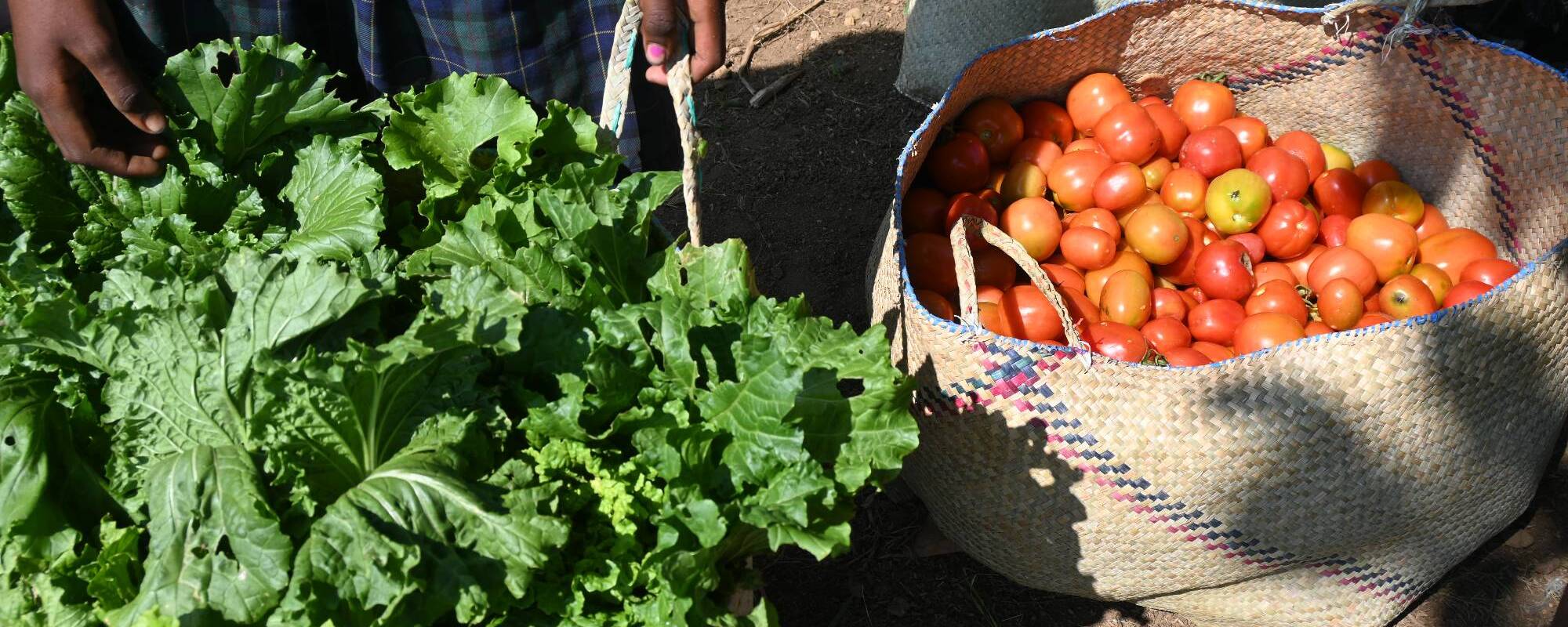Project Agroforestry
In southeast Madagascar, where communities rely heavily on local land and natural resources, smallholder farmers face increasing pressure from climate shocks, environmental degradation, and low agricultural productivity. Meanwhile, traditional land use practices continue to fuel deforestation, degrade fragile soils, and increase wildfire risks. In response to these converging challenges, SEED Madagascar has launched an agroforestry pilot project, embedded within our Sekoly Maintso (Green School) initiative.
Agroforestry - growing crops and trees together - offers a sustainable way to restore soil, improve drought resistance, store carbon, and support biodiversity.
This new pilot project, running from March 2025 to February 2026, is based at Tsagnoriha Primary School, a rural school built by SEED in the Anosy region. Its main goal is to promote the adoption of more resilient farming practices within the Tsagnoriha community by demonstrating sustainable solutions that balance environmental restoration with productive and resilient land use. This is an increasingly urgent need across Madagascar, where approximately 80% of families rely on subsistence farming. The project also helps improve schoolchildren’s nutrition by diversifying their diets and supporting their wellbeing. Spanning 3,000 m², the agroforestry pilot site provides year-round harvests and serves as a hands-on learning space for sustainable farming skills.
As communities in Madagascar face growing challenges from climate change, deforestation, and poor nutrition, there’s an urgent need for innovative, community-led solutions. SEED believes that agroforestry provides a path forward by cultivating a living, learning ecosystem that restores the land and empowers project participants.
Communities will benefit because we’re bringing new experiences into this school, which can also help them improve their farming outside of here. I’m very happy to be part of this project.
Madame Caroline, Agroforestry Community Planting Lead

Our progress (March 2025 - July 2025)
- A 3,000 m² site was cleared, fertilised, and prepared for planting.
- 35 raised planting beds were prepared for various crop combinations, along with 5 control beds for single crops, and 5 nursery beds.
- 150 kg of vegetables have been harvested to date, including courgette, cucumber, radish, salad greens, tomatoes, and basil.
- Fruit and moringa trees were planted across the site for their nutritional and agricultural benefits.
- Two women from the community, experienced in organic vegetable farming, have taken on roles as community planting leads to oversee the site’s daily management.
- Four trainings were delivered by SEED to project participants on site preparation, composting, pest management, and harvesting.
- A dina (local law) was established, outlining rules agreed upon by the community to help protect the site.
Next steps
- Continue regular planting, harvesting, and monitoring activities alongside project participants.
- Provide fire mitigation training for the site guard and distribute fire mitigation equipment to the community.
- Conduct training sessions for project participants on nutrition, food preparation, and strategies for the long-term management of the site.
